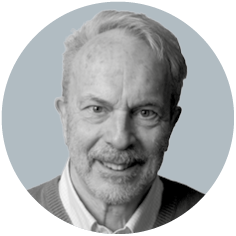Development studies
The middle-class hype
 Böthling/Photography
Böthling/Photography
The Swedish sociologist Göran Therborn asks whether this will be the century of the middle class. He argues that the labour movements of the past century are no longer relevant since the project to emancipate citizens all over the world under the leadership of the proletariat has been replaced by an aspiration to attain middle-class status. Therborn sees his view reinforced by the 2012 OECD survey of global perspectives, which stressed the need to strengthen emerging middle classes.
The sociologist also refers to a plea by Nancy Birdsall, the president of the Center for Global Development, an influential think tank in Washington. Birdsall wants policy-makers to shift their priorities from “pro-poor growth” to “pro-middle-class growth”.
The same attitude underpinned the Human Development Report 2013, which was published by the UN Development Programme (UNDP) and the conference of the European Association for Development Research and Training Institutes (EADI), which was held in Bonn in June 2014. The EADI plenary takes place every three years, and last year’s topic was: “Responsible development in a polycentric world. Inequality, citizenship and the middle classes.”
Jürgen Wiemann, EADI’s vice president, argues that more equitable and sustainable development can only be achieved worldwide with the help of the new middle classes in emerging-market countries (see his
article in D+C/E+Z 2014/04, p. 164 ff.). According to him, “steering the global economy onto a more sustainable path of development depends in large part on the ‘new’ middle classes”. He writes that they “must review and modify their consumption habits as quickly as possible in order to prevent environmental damage and social catastrophes”. Wiemann believes that the “old” middle classes in OECD member states must take a leading role and provide a model of sustainable production, consumption and lifestyles.
The real winners
This theory of the middle class is contradicted by the bestselling book “Capital in the twenty-first century” by Thomas Piketty, a French economist. He makes it clear that material inequalities within societies have been sustained and exacerbated by the reproduction of financial wealth for two centuries. Piketty’s evidence shows once again that the theory of equal opportunity is an ideological farce under the supposedly free capitalism of a market economy. Piketty uses empirical statistics to demonstrate convincingly that capital and its owners have always tended to produce ever-greater inequalities. This trend is nothing new.
Piketty explains the phenomenon by pointing out that the returns on capital normally exceed increases in work incomes. Over time, the gap between the one percent of the truly rich and everyone else has grown significantly. The notion that the middle classes are the winners of our era is therefore mistaken. The real winners are first and foremost those who use profits to generate ever more private wealth.
According to recent Oxfam data, one percent of the world population will control more than half of all measurable wealth by 2016 if current trends continue. In light of such striking disparities, it is unclear how the middle classes should pave the way for a better future.
Definition issues
The idea of the “middle class” is rarely the subject of critical scrutiny. It took shape as a result of the erosion of the working class and the increasingly blurred boundaries between social classes. Even the question of who belongs to the middle class is up for debate. Raphael Kaplinsky from Britain’s Open University criticises the fact that some institutions, for instance the African Development Bank, consider anyone middle class whose income exceeds two dollars a day, basically counting anyone who is not starving as “middle class”.
Back in 2009, Martin Ravallion as chief economist at the World Bank proposed to classify households in developing countries as middle class if their per-capita consumption ranges from two to $ 13. In contrast, the Human Development Report 2013 relied on a definition from the Brookings Institution according to which people are middle class if their daily expenditure ranges from $ 10 to $ 100 per person. These figures diverge dramatically, but at least there seems to be a consensus that persons who have $ 10 a day at their disposal have reached a socio-economic territory that is more or less safe.
Since the definitions are so vague and correspond to quite different lifestyles, it is hard to see how thus conceived middle classes should position themselves in society. Many academics agree that these classes are driven by self-interest and often have a “NIMBY” attitude. NIMBY stands for “not in my back yard”. Basically, these people feel that their interests should be protected and are likely to oppose worthy reforms that affect them in any negative way. They are not willing to compromise their group’s interests and privileges.
There is evidence for representatives of the middle class being more likely to guard their relative privileges against the incursions of poorer classes than champion alternatives that would help to reduce poverty. They are not about to become progressive drivers of social reforms that would benefit the majority.
China’s middle class, for instance, is more concerned with retaining its privileges and remaining loyal to the state that made its social advancement possible than it is interested in greater social justice and equality. The middle classes help the regime to maintain the status quo. South America’s middle classes have historically tended to side with reactionary regimes and coups rather than fight for social reforms.
Lack of solidarity
Middle classes in African countries are hardly influential, and they have recently proved to not be particularly democratic. When Afrobarometer surveyed attitudes towards democracy on the continent, the middle classes came across as rather elitist. They think that the “uneducated” are not qualified to vote since these people supposedly do not understand what is actually at stake in elections.
The middle classes do not have much to contribute to discussions on the need for a new social contract to build the basis for sustainable development. The lack of solidarity they exhibit in national societies is palpable at the international level as well.
Ultimately, the hype surrounding the middle classes seems to be aimed at creating the false impression that they will shape the future. They will not. Existing power structures make that impossible. The middle classes cannot fix issues that are outside their immediate sphere of influence and power. To a large extent, the discussion about the middle classes is a distraction from the real challenges we face.
Henning Melber is the director emeritus of the Dag Hammarskjöld Foundation in Uppsala and an extraordinary professor at the University of Pretoria and the University of the Free State in Bloemfontein.
henning.melber@dhf.uu.se
References:
Birdsall, N., 2010: The (indispensable) middle class in developing countries. Washington: Center for Global Development (Working Paper 207).
Bratton, M., 2013: Voting and democratic citizenship in Africa: Where next? In: Bratton, M. (ed.): Voting and democratic citizenship in Africa. Boulder, Colorado and London.
Kaufmann, D., Kharas, H., and Penciakova, V., 2012: Development, aid and governance measures: Middle class measures. Washington, DC.
http://www.brookings.edu/research/interactives/development-aid-governance-indicators
Kharas, H., 2010: The emerging middle class in developing countries. Paris: OECD Development Centre (Working Paper; 285).
OECD, 2011: Perspectives of global development. Paris.
Piketty, T., 2014: Capital in the twenty-first century. Cambridge.
Ravallion, M., 2009: The developing world’s bulging (but vulnerable) “middle class”. Washington, DC: The World Bank/Development Research Group (Policy Research Working Paper; 4816).
Therborn, G., 2012: Class in the 21st century. In: New Left Review, No. 78.
